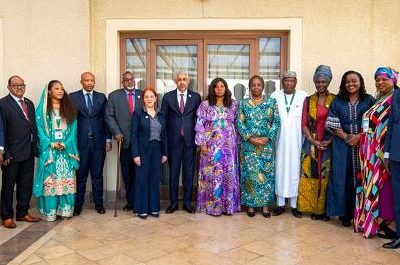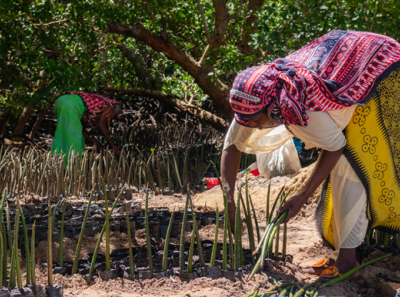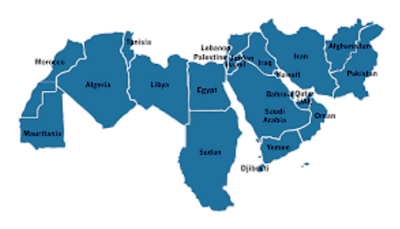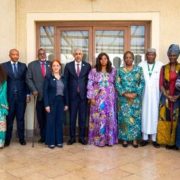If Hassan Usman (not real names) has his way, he would become a medical doctor or an administrator in government service. He has always admired medical doctors and dreamt of using his medical training to cure people of their ailments.
Being an administrator would make him fulfill his aspiration to make people ‘educated and wealthy.’ He believes lack of education and material wealth is responsible for his condition and those of his peers with whom he sleeps on the cold floor every night in Zaria, northern Nigeria. Zaria is home to the over five decades old Ahmadu Bello University.
Mohammed is an Almajiri. He is part of the estimated nine million Nigerian children who make up the Almajiri Koranic school system, a network of Islamic schools common in northern Nigeria and other parts of the continent spreading from central to the extreme part of West Africa including Chad, Burkina Faso, Ghana and Niger. The Almajiri system is designed in the form of an Islamic boarding school usually led by a Koranic teacher, mallam. The mallam assumes authority over his wards sent by their parents from as young as four or five to learn to memorise and recite the Koran.
But over time, the Almajiri system has become synonymous with child destitution in Northern Nigeria; a complex form of social menace that has provoked widespread concern and a mix of equally complex remedies. While some state governments in northern Nigeria had severally tried to address the issue by offering financial supports to some of the Koranic schools within their jurisdictions, it had failed to address the core challenges of begging and destitution. Some critics say efforts to enlighten the mallams and make the ‘almajiranci’ look like a modern boarding house where the children can learn in a more conducive environment have never gone beyond official statements.
But Sokoto State appears to be an exception. It has had a long history of edicts aimed at addressing the almajiri problem. In 1980 it enacted ‘ the Control of Juveniles Accompanying Mallams Adoptive Rules.’ The law was designed to put restrictions on the movement of almajiri. In 1986, the state established a committee on ‘Control of Migrant Quranic Teacher, and Children’ which facilitated the enacted of laws restricting the movement of the ‘Migrant Quranic teachers and the school children.’ About 13 years later in 1997, the state tried to address the same menace in realization that it had defied previous solutions. The state set up a new committee to ‘look into the issues of almajiranci in Sokoto.’
But fighting what has become an accepted way of life would need more than laws as the Sokoto example has shown. The enactment of laws spanning over two decades has failed to solve the problem. According to Islamic tradition, the concept of Almajiri started as a result of Prophet Mohammed entreatment to the faithful to seek for knowledge no matter how far it will take them, even if it is as far as China. But the entreatment of the prophet appeared to have suffered both cultural abuses and feudal subjugation for more than a century in areas of northern Nigeria and surrounding countries.
For the likes of Usman and his likes life cannot be tougher than squeezing water from stones. Often put in the care of Islamic guardians entrusted to put them in the way of knowledge, they are left to beg for a living to keep their guardians going and themselves alive for just another day. All over northern Nigeria, the almajiri has become synonymous with child destitution.
Usman considers himself lucky inside the campus of Ahmadu Bello University where he does different menial jobs moving from one student hall to another. He has gained popularity for his skill at fixing the soles of shoes as a cobbler to performing laundry services. Even for this labour, Usman doesn’t earn much. Those for whom he labours consider themselves generous for the stipends they pay to the almajiri who shares his dream of acquiring western education with them. The almajiri has one of two forced options: to beg for livelihood or become a source of cheap labour.
On less tiresome days, Usman manages to attend the local primary school where western education is taught. His Koranic teacher, the mallam, does not know. If he knows, he risks being chastised. Many Koranic teachers abhor western education for all its ‘negative’ influence. Every evening, Usman returns a good percentage of what he earns to his mallam and keeps the meager balance to secretly offset small bills at the primary school. If his good fortune does not go to sleep, Usman hopes his secret dream of wearing the white laboratory overcoat he sees on the medical students inside the university will become true one day. But it is just a dream. The stark reality is that life has forgotten Usman and millions of Nigerian children. They are the hungry, dirty faces left to wander on the streets of major cities everyday in search food and meaning for their lives.
Abba Gana Shettima, senior lecturer in the Department of Sociology, University of Maidugur, writes in www.amanaonline.com, that “the Almajiri are innocent children who have become unfortunate victims of societal neglect, let loose to drip and get drown in the unfathomable sea of corruption, ignorance and poverty; and thus often hypnotized, hoodwinked, coerced or simply hijacked to play active roles in many of the northern conflicts.”
After the Usman Danfodio jihad in Nigeria, Islam took firm root in some parts of the north particularly Sokoto, Kano and Zaria and with it came a greater craving for Islamic knowledge in those established centres. Many parents sought to plant Islamic teachings in their children by ensuring they go to those centres of learning no matter the distance.
But with modernity and the attendant struggle for economic survival, the tradition to acquire Islamic teachings from distance places under the tutelage of a mallam has suffered greatly particularly among poor parents. To them, the almajiri system provides a painful opportunity to escape the heavy responsibility for catering for their children due to abject poverty.
Oil rich Nigeria is considered one of the poorest countries in the world with more than 80% of its 150 million people living below the poverty line. According to the UN, more than 83% of the population lives on less than a dollar a day. In the north, regarded as having the highest concentration of illiterates in the world by a UN 2008 literacy index, poverty is extremely rampant and helps breed the almajiri institution much more rapidly than in other parts of the country where child destitution is equally common. The almajiri system is today synonymous with extreme poverty and child neglect.
In the few last decades, the almajiri has been a constant social sore seen on the streets, inside the hospitals, schools, markets and other public places begging for a living. The luckier ones that survive end up as cobblers nail cutters, or street side orange sellers. Uneducated and bereft of any sense of direction, the almajiri has become a willing tool in Nigeria’s most recent bloody political and religious conflicts in the north. With politics and the conflict for control of national resource becoming violent, the almajiri has often ended up as the pawn in the class conflict as argued by late Bala Usman, resolute scholar from Kano State and late Mallam Aminu Kano, one of Nigeria’s most respected politicians touted as the defender of the poor.
“The issue of “Almajiri” in Nigeria is less of an Islamic thing but more of a class issue. Those who are benefiting from it don’t want it abolished. The Nigerian progressives especially those of our comrades resident in the North should be all out to see to it that the practice is abolished,” said labour activist Comrade Ephraim Adinlofu. He wants education and poverty eradication initiatives that are specifically targeted at the almajiri to be implemented.
Adinlofu in a published article, about six months ago, on ‘The Almajiri, Talakawa and Dan-Arewa Ideology,’ declares that the almajiri systems subsist on oppressive consciousness as propounded by Prof. Paulo Freire. The late Brazilian scholar argued that ‘oppressive consciousness,’ is a cleverly conditioned state of mind and thought system of a person who sufficiently holds that there is no alternative to his state of destitution. The individual knows he is being exploited, oppressed and demeaned by a system but is unwilling or disinclined to social action to free or liberate himself.” The oppressed in Nigeria, particularly northern Nigeria have come to accept their condition as their fate, said Adinlofu in an emailed response to Baobab magazine.
But Kabiru Inuwa, a social commentator, thinks the problem is all engaging and demands the involvement of government, people and institutions. According to him, “there is no way we can tackle the menace without incorporating all stakeholders, the ulama, the intelligentsia, business communities, and government at various levels -which must including those of neigbouring states including Niger, Chad, Burkina Faso, Mali, Senegal, Cameroon and Ghana. It may interest you, to know that most of the almajiris roaming the streets in Nigeria are from these other countries, though many people don’t want here that.”
Parents too need to be enlightened on the evil of sending their children away to acquire knowledge in excruciating circumstances that defeats the original purpose of the intention, said Hajia Aisha Adamu, a grandmother in Kano. For her, “no level of poverty should make parents take their children to far places for almajiri.”
Adinlofu calls for an end to almajiri through intervention of progressive elements. His words: there is a need for the progressive intellectuals in the North to really sit up and begin to re-educate and conscientized the Talakawas and the Almajiris in their midst. I am yet to really come to grasps with what the contemporary progressives in the North are doing to woo the above two categories, who are system-dispossessed and economically disadvantaged, to their own side in the struggle to emancipate the Northern region, and perhaps by extension, Nigeria.
Shettima is more confident that a less radical approach will ultimately address the almajiri scourge. Social response will happen because it becomes inevitable not to resolve the problem. He writes: “Fortunately, there is also presently a high level of consensus among the cream of Northern Nigerian Muslims that the Almajiri system of education needs to be thoroughly reformed. Many states are gradually but surely going to reform the system. They have no other choice.”
For Hassan Usman in Zaria, all these arguments mean nothing: ‘oppressive consciousness, consensus among the cream of Northern Nigerian, and edicts by governments will not translate to putting him in the lecture halls of Ahmadu Bello University as a student. His most coveted dream. How to live beyond a day and bring his dream of becoming a medical doctor alive appear to be an unnecessary indulgence in plum wishes. But even an almajiri is entitled to making a wish. It’s just that wishes don’t make a horse, particularly for a child destitute in 2009 Nigeria where most people live on less than a dollar a day.

















